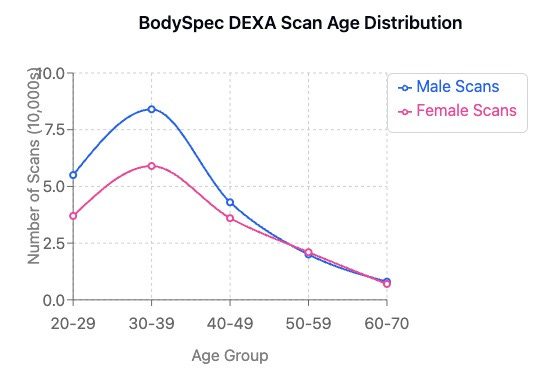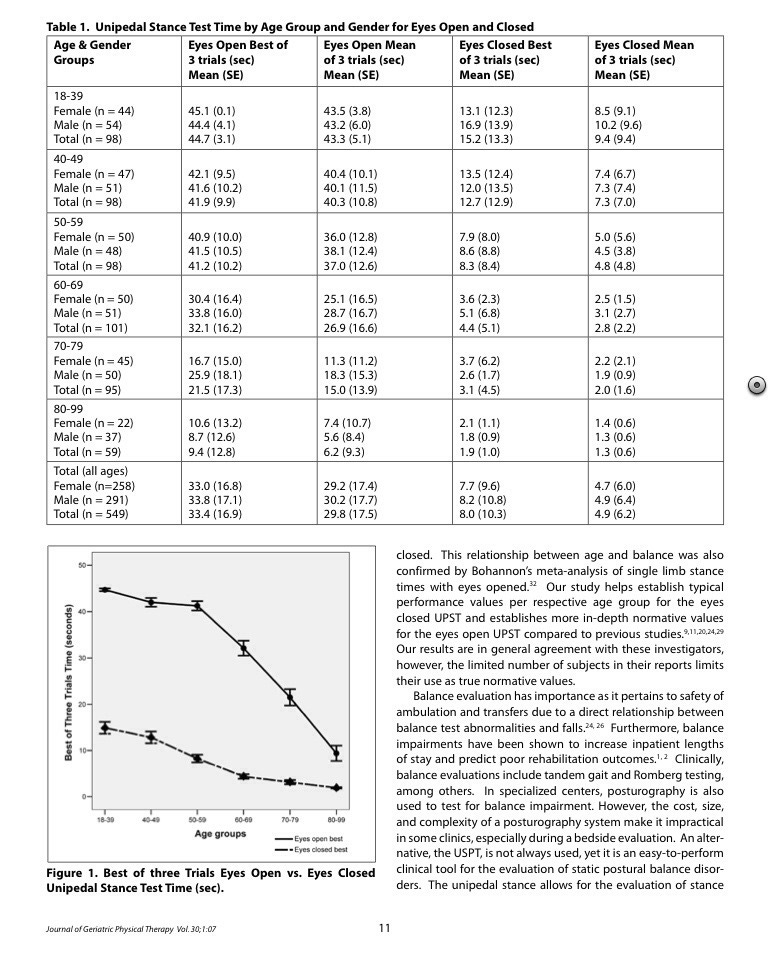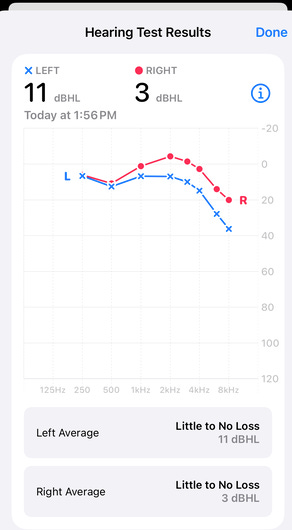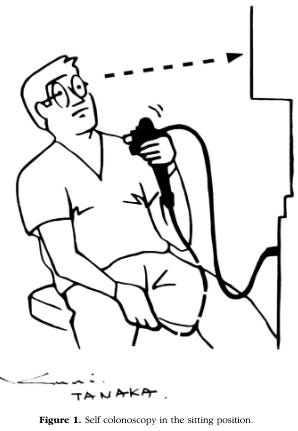Personal Science Week - 241114 tests and more tests
Updates on DEXA, hearing, balance tests, and more
Personal scientists like quantitative information, so we’re especially attracted to diagnostic tests of all kinds.
This week we’ll update some previous tests and suggest new ones (plus a few you shouldn’t try)
More from BodySpec
Last week PSWeek241107 we discussed the results of my easy $50 BodySpec DEXA scan, but noted some questions I couldn’t answer. The company offers a number of (free) live coaching and Q&A webinars, plus a very responsive customer support team and I got my answers.
I was worried about some of my poor scores (e.g. dangerously low bone density, and fat percentiles that don’t seem to agree with my BMI). and the company confirmed that I’m being compared to other BodySpec users, not the general population. Although you’d think this would bias toward health conscious people—who else would pay out-of-pocket for a service like this?—BodySpec says they have data from all types of people. And anyway, they claim that all the other datasets out there are much smaller, and skewed in their own ways. In fact, they claim to have enough repeat users, i.e. longitudinal data from the same person over time, that you can get additional insights from comparing your progress to others like you.
tldr; I need to get working on my fitness

Tests you can try
In PSWeek240418 we discussed several ways to test your hearing, but if you have an iPhone and some Airpods Pro, here's another one. Insert your Airpods into your ears, tap into the Airpods settings and select "Take a hearing test". After about five minutes listening to a series of brief tones at different frequencies, it'll generate an assessment like this one. Tip: be sure to do this in a super-quiet room; my left ear looks worse only because I didn't shut the door first.
Test your sense of balance
Much of self-measurement requires an understanding of the range of acceptable values. Without knowing the comparable context, it’s hard to tell whether a given number is “good” or “bad”.
This chart, from a 2009 study by researchers at Walter Reed Medical Hospital, shows how long you should be able to stand on one foot, either with eyes open or closed.
Cross your arms first, and start the timer as soon as your foot leaves the floor. Stop when you can no longer safely remain on one foot.

See more details at the 2014 blog post on Posture and Pain. Also see 1 Sept 2022 Personal Science Week for a similar chart for pushups by age.
Tests not to try
What's it like to be a volunteer in a challenge trial where they deliberately infect you with shigella, the bacteria that causes dystentery? Here's a well-written personal account from somebody who was clearly not in the placebo group. Interestingly, about half the people in the trial didn't get sick; was it from the experimental new treatment, or are some people just naturally immune?

Hate going to the doctor for a regular colonoscopy? Do it yourself, using the instructions in this 2006 paper. Pro tip: it’s easier sitting up rather than lying down. And don’t worry if you find that some sessions are more painful than others; it’s normal for patient discomfort to vary even within the same person.
Speaking of tests
A paper from economist David Faigan says the Bar Exam doesn't predict who will be a good lawyer:
We find that performance on both the Multistate Bar Examination (MBE) and essay components of the Nevada Bar have little relationship with the assessed lawyering effectiveness of new lawyers, calling into question the usefulness of these tests.
And tests don’t just have to be on yourself. That "Whale" who made a bundle betting on Trump in the prediction markets based his decision on his own private voter survey . Unlike other pollsters who ask "who will you vote for?" he asked "How do you think your neighbors will vote?".
This is an old trick when you want to uncover somebody's real feelings about something: Don't ask directly. For example, if you want to know the truth about a student, don't ask "did you cheat?" Ask "What's your guess on the percentage of other kids who cheated?"

Try testing your local government. Environmental activist Brandy Deason put Airtags in her recycling waste to see if her city really was recycling plastic the way they claimed. tldr; no, her empty plastic bottles were just piling up at another storage facility, with none of the acclaimed benefits of recycling.
Nutrition scientist Lara Hyde ran a 10-week experiment to see how fermented food affect her microbiome. She did the full Viome gut/blood test before and after beginning an intensive regimen of 6 servings/day. tldr; no real difference once you take into account the margin of error on the test.
And hey, why not test your smoke detectors while you’re at it. Two startup entrepreneurs, frustrated at those stupid chirps in the middle of the night, wrote the Definitive guide to smoke detectors
“I realized over time that in researching my own smoke detector needs I actually accidentally became an expert,” Doppelt said. “It’s so dorky. The more you dig the more interesting it gets. The rabbit hole is super deep.”
About Personal Science
Does that supplement really work? Should I switch to the keto diet? Are seed oils bad for me? One doctor says this, another says that—who should I believe?
If you think these are interesting questions, but you’re skeptical about the easy answers people tell you, then you might be a personal scientist. Each Thursday, Personal Science Week discusses topics for people who think science is a tool that anyone can use to get closer to the truth.
If you questions or other topics you’d like to discuss, let us know.





I’m a little skeptical of the effective lawyer study because of how I’ve seen this play out in similar studies in education. Asking about someone’s “effectiveness” is just substituting another metric for the actual outcome we want to measure, I.e. their actual effectiveness.
Studies that rate teacher “effectiveness” based on surveys typically show little correlation with student test score changes. I wonder what the correlation is between lawyer’s rating and their actual win rate?